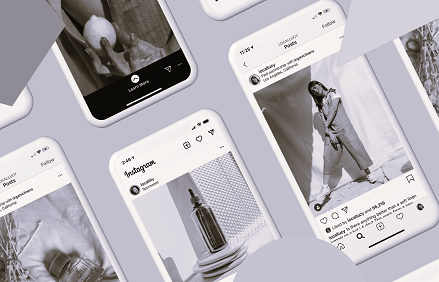In today’s digital age, social media platforms have revolutionized the way we communicate, express ourselves, and market products and services. These platforms, such as Instagram, YouTube, and TikTok, have become an integral part of our lives, shaping our interactions and influencing our decisions. Moreover, the rise of influencer culture has added a new dimension to this phenomenon, further impacting consumer behavior and brand promotion.
Social media platforms have transformed communication, breaking down geographical barriers and connecting people from all corners of the globe. It has provided individuals with an avenue to share their thoughts, ideas, and experiences instantaneously. Whether it’s through sharing personal stories, engaging in meaningful discussions, or spreading awareness about important social issues, social media has become a powerful tool for self-expression.
In addition to personal communication, social media has also become a hub for marketing and brand promotion. With billions of users worldwide, these platforms offer businesses a unique opportunity to reach a vast audience. Companies can now directly engage with their customers, showcase their products, and create personalized marketing campaigns. Social media has enabled targeted advertising and data-driven strategies, allowing brands to tailor their messages to specific demographics and interests.
The emergence of influencer culture has further amplified the impact of social media on consumer behavior. Influencers, who have amassed a significant following on social media, have become key opinion leaders and trendsetters. Their authentic and relatable content resonates with their audience, creating a sense of trust and connection. Consumers often look to these influencers for recommendations, whether it’s for fashion, beauty, travel, or lifestyle choices.
This shift in consumer behavior has led to the rise of influencer marketing, where brands collaborate with influencers to promote their products. These partnerships often result in sponsored posts, product placements, and reviews, reaching a highly engaged audience. The influence of influencers has the potential to shape consumer preferences, drive sales, and build brand loyalty.
However, the rise of influencer culture also raises concerns about authenticity and transparency. As influencers monetize their platforms, it becomes crucial for them to maintain integrity and disclose any brand partnerships. Striking a balance between personal content and sponsored collaborations is essential to retain the trust of their audience.
In conclusion, social media platforms have transformed the way we communicate, express ourselves, and market products. The rise of influencer culture has added a new dimension to this phenomenon, shaping consumer behavior and brand promotion. As social media continues to evolve, it is important to recognize its power and influence, while also promoting transparency and authenticity in the influencer space. With the right approach, social media and influencer culture can create meaningful connections, foster creativity, and drive positive change.
Who we are: Funded.com is a platform that is A+ BBB rated over 10+ years. Access our network of Investors, get instantly matched with a Lender, or get a business plan by visiting us Funded.com
You can review our featured partners to help your success with your business or project.




